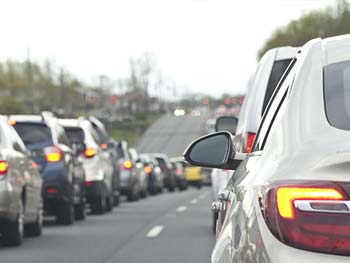
A number of people are enamored with the high-tech car company Tesla and their cars’ promise of a completely electric driving experience. Others have taken an interest in the advanced technology available with a number of Tesla’s models, notably the Autopilot feature on the Tesla S. Autopilot is composed of a number of forward crash avoidance and mitigation systems, such as Autosteer and the automatic emergency braking (AEB) system.
But Autopilot has come under fire because of a May 7 Florida accident in which a man died. Joshua Brown’s 2015 Tesla S drove under a tractor-trailer while Autopilot was engaged. The truck was making an illegal left turn at the time and it appears that the Autopilot system did not attempt to stop the car. The crash is the first known fatal one for a Model S while Autopilot was in use.
The National Highway Traffic Safety Administration (NHTSA) wasted no time before opening a preliminary investigation into the car’s AEB system, along with Autopilot and Autosteer. The NHTSA’s Office of Defects Investigation (ODI) fired off a nine-page letter to Tesla, detailing all the information they require from the car company in order to complete their inquiry. Some of the information that the NHTSA seeks includes:
- The total number of cars sold in the U.S. by Tesla
- All reports Tesla has of owner complaints, of reports of problems from dealers, and of arbitration proceedings related to Tesla defects
- All tests and investigations that Tesla has conducted concerning their AEB system not engaging when it would be expected to
- The number of miles Teslas have been driven while using Autosteer
- The number of times Tesla cars have warned drivers to take the wheel while Autosteer was engaged
- The number of times after such warnings were issued that Tesla cars cut power to the engine.
In other words, the NHTSA wants every scrap of data Tesla owns related to the cars and their autonomous driving systems.
A non-fatal but still frightening incident with a Tesla S occurred on I-5 near Los Angeles in late April. The driver says that the Tesla’s safety features did not prevent her from hitting the rear end of another car; she claims that she needed to jam on the brakes when it became clear the car was not going to stop by itself. The Tesla was still going approximately 40 mph when it back-ended the other vehicle, despite the driver’s last-second attempts to stop the car. Tesla contends that the data logs reveal that there was no fault in the adaptive cruise control system.
In China, one driver who got into an accident asserts that the Tesla dealership told him that Autopilot was the same as self-driving. While it is the first crash of this kind in China that we know of, and although the dealership maintains there was no fault on their part, Tesla has removed the words “self-driving” from their Chinese website.
It is important to remember that autonomous driving systems are not the same as “self-driving” systems, such as those being tested by Google. Autonomous driving systems still require the same attention and focus that you would give to driving a car without the system, even if your hands are not constantly on the wheel. In the meantime, we will have to wait for the NHTSA’s investigation to conclude to find out the rest of the story.
We’re listening. How can we help?
At the Law Offices of Steven H. Heisler, we have devoted our practice to defending the rights of personal injury victims. We know how traumatic a serious car accident can be for both the injured person and for his or her family. If you or a loved one was seriously injured in a vehicular accident, you may be entitled to various kinds of financial compensation, such as medical bills, lost wages, and pain and suffering. Keep in mind, however, that there is a statute of limitations – or a time limit – for filing personal injury claims. If you’ve been injured in an accident, it’s essential not to delay seeking the assistance of a skilled Baltimore car accident lawyer who can guide you through the legal process and help you secure the compensation you deserve. Contact Steve today for a free initial consultation by calling (410) 625-4878, or use our online form.
